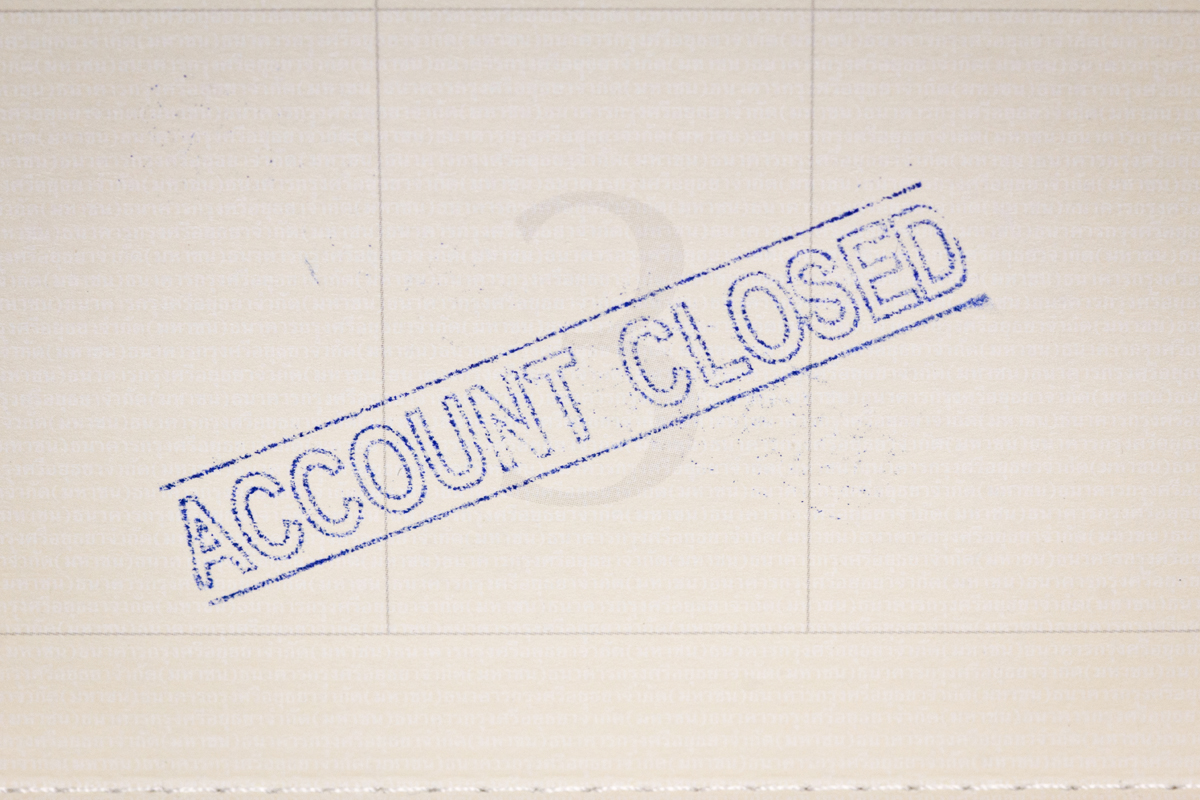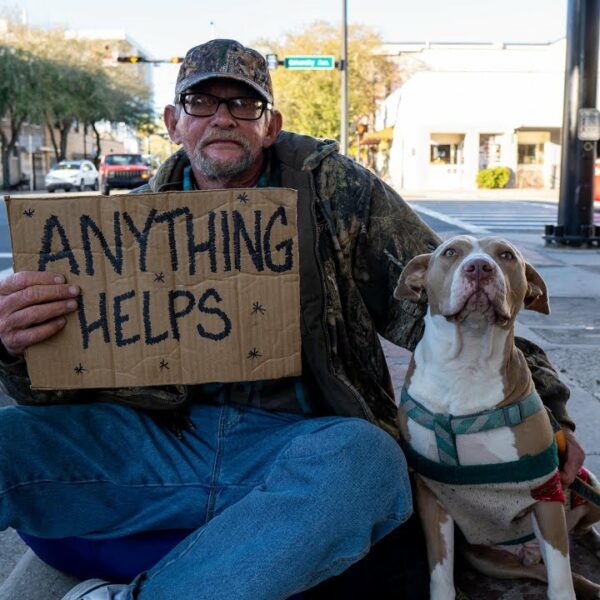This morning I woke up to a strange man staring in the windows of my car. I don’t think he saw me because he kept staring. I hope he didn’t know I was there, behind the scarves wrapped around my front windows. Being out here makes us vulnerable to others. After a while he walked away, thankfully.
Then my phone rang. That’s a big deal for me; I’m homeless so nobody ever calls. Of course the call turned out to be from a bill collector. After I told her that I was homeless, in my car and sick, she responded with a sympathetic clucking sound.
But then I asked her about the overdue bill. She named two doctors I’d seen a year ago. When I told her my VA insurance covered everything, and per contract I was not to be billed any further, she started to argue with me.
That showed her intelligence level. Arguing with a homeless person about paying a covered medical bill is slightly north of ludacris on the crazy compass.
It also showed her level of meanness. Harassing someone surviving homelessness during a pandemic, for an old medical bill, is just mean.
So, I told her she didn’t have any right to destroy my credit when contractually the bill was considered paid. And, I was not mean.
After I hung up on her, the epiphany hit me.
How many Veterans are out there who have had their credit ruined by the same situation over medical coverage, and not even known it had happened?
Overall, Veterans are pretty responsible people and pay all their bills. Even a past President discussed this issue on TV, years ago, making it very clear that once a medical facility accepts particular VA health insurance coverages, that’s it. That’s all they get.
I’ve had numerous medical facilities turn me down because they don’t want to accept my medical coverage. They know they can’t bill me for more money. One hospital charged me $11,000 for an MRI. When I got the next bill, marked as “paid in full”, my VA insurance had only paid $700. Total. Yet, paid in full. Wait, what?
If I didn’t know about the Veterans contract for medical services and care and I had tried to pay that bill, it would have taken everything I had during the next two years. Everything. Don’t let a collection agency guilt you into paying something you don’t owe.
This practice continues and harms homeless Veterans who may be unaware the doctor they saw last year is now ruining their credit. Or that they don’t have to pay that excess billing. It also forces good, responsible people to pay whatever the health care market dictates, after the treatment and after the doctor’s office has already collected their insurance payment.
How many people, and not just Veterans, are homeless because of exorbitant medical bills? Especially when it comes to life saving care like cancer treatment. How often does anyone ever speak up about this?
Okay, well I am now.
If you’re surviving receiving federal funding including Social Security, VA, student loan proceeds, Railroad Retirement and other federal funding, you’re also protected against threats of garnishment. Under federal law, the threatening lady could not get anywhere by trying to scare me into paying something I didn’t owe. Even if I had owed it, she still couldn’t garnish my bank account.
If you’re a Veteran receiving benefits, don’t allow anyone to call you demanding you pay them. With the exception of child support and similar debts, no one can touch the account. As long as it contains only Federal benefits.
This is true for the Stimulus checks, as well.
Apart from child support, bankruptcy court orders, and private debt orders, your stimulus is meant for you. Even student loan payments are on hold until September 30, 2020.
Another vulnerable spot for Veterans and people on Social Security is their bank account. If a Veteran has a benefit award, the funds are automatically deposited into their account. But those accounts can be destroyed by overdraft fees due to a simple error.
Under Federal Law, Veterans benefits, Social Security, Student loan proceeds and other Federal funds, are exempt from such bank actions as overdraft fees, once you opt out. However that doesn’t cover recurring fees like a movie subscription or an insurance payment that you’ve agreed to pay.
While the banks should know better – they are responsible to be up to the minute on current banking regulations – they can and will charge your account even when they are not supposed to.
You must fight the charges. Most people accept the responsibility of having made an error, except the overdraft fees levied against their accounts, and don’t fight back.
It makes more sense if you understand that, yes, you may have made an error. However, it’s the bank’s decision to honor that erroneous transaction rather than deny it. When the bank decides to honor the transaction they charge you a $35 overdraft fee for what amounts to a short-term loan for typically a small amount of money. If you tried to overdraft your account by more than $100, you can bet, overdraft protection or not, the bank would likely deny it.
By definition under federal law, the overdraft fee is usury. Most people get their overdrafts taken care of within a couple days. Ergo, a $35 charge to borrow $5 for two days, is pretty outrageous. Yep, that’s usury.
A bank can continue to add overdraft charges if you were unaware of your low balance, and the account holder ends up with a negative balance. If the account remains negative, the bank automatically closes the account. This is how bank accounts, which are also a credit reference, are lost forever.
But wait! There were lawsuits against the banks to make them stop doing this.
Many people receiving Social Security and Veterans benefits ended up losing their bank accounts because of overdraft fees. Levied against a tiny bit of income, a $2 error could destroy an account. There were class action suits against almost every major bank.
Of course the banks fought back, arguing they were providing a service through overdraft protection. In the end, the agreement was you must either opt in or opt out of overdraft protection. This is true even with federal funds such as Veterans benefits or Social Security.
So call your bank and tell customer service that you “opt out” of overdraft protection.
While you’re on the phone make sure you don’t have any service fees that you’re unaware of, that are regularly subtracted from your account. One account I had started charging a $5 service fee every month. I didn’t know because I couldn’t receive my mail.
If you’re newly homeless, this is a good time to remember most people opt-in so they have the overdraft coverage. These are the people who would rather pay the $35 overdraft fee than be embarrassed in public because the card was declined. (Anyone remember those days?)
I’d rather be told I don’t have the funds to buy a cheeseburger, rather than end up losing my bank account due to overdraft charges.
We get so used to hearing a person surviving homelessness, saying, “No I don’t have a bank account, I lost it.” I’ve heard it so often that I stopped asking when I was trying to explain to some friends surviving homelessness how eBay works, and how they could create income.
But, you have to have a bank account to open an eBay, Amazon or other seller account.
I’ve seen some beautiful art pieces created by people surviving homelessness. Missing a bank account is missing the opportunity to earn from those talents and possibly find housing again.
Somewhere in our heads we attribute a lost bank account to the other problems that caused the person to lose their housing and end up on the street with nothing. When you start to look into banking regulations, often that assumption just isn’t true. A corporation can make a financial error totaling millions to their benefit. Meanwhile, they wipe out vulnerable individuals who are unaware they were protected.
We’re also vulnerable to each other and family members when it comes to our bank account and bank card.
Hide your bank card and practice discretion using it around other persons. I can’t tell you how many times I’ve heard people saying their ID or their bank card was stolen.
Here, the account is solvent, but the card is gone. Without an address, you cannot get a replacement bank card. My only thoughts are to hide your card! Don’t fall prey to someone saying that they’ll “hold it for you for safe keeping.”
We may not have much, but even if you’ve got $5 in the bank, hold on to that account and the bank card. It is a lifeline.
Housed or not, people will take advantage of others more vulnerable than them. This is especially true during this time of national crisis.
The worst, however, is a collections caller who calls a homeless Veteran, demanding payment that was never owed.
Well, okay, maybe collection callers are in line after weird guys peering in the windows while I sleep. Thank heavens for locking car doors.













